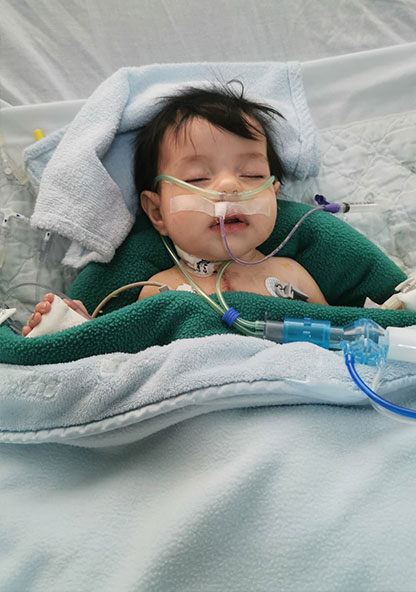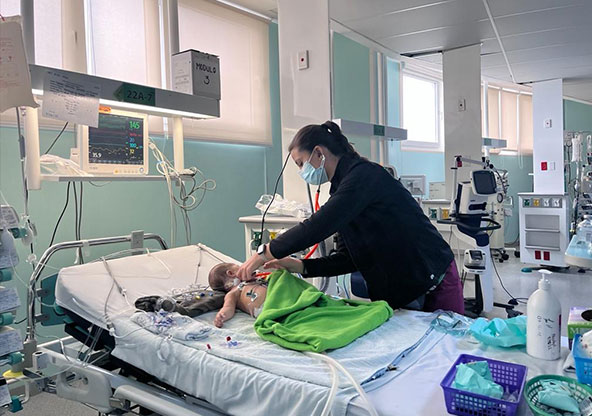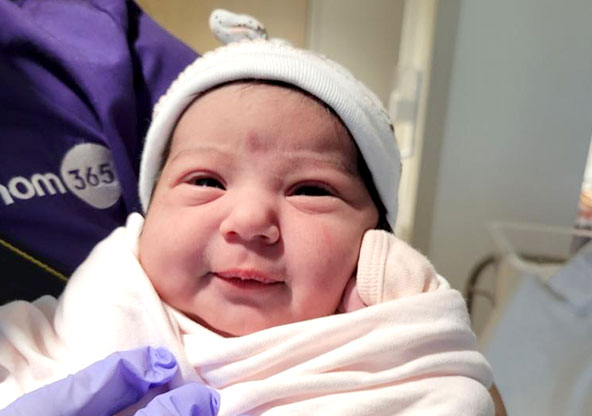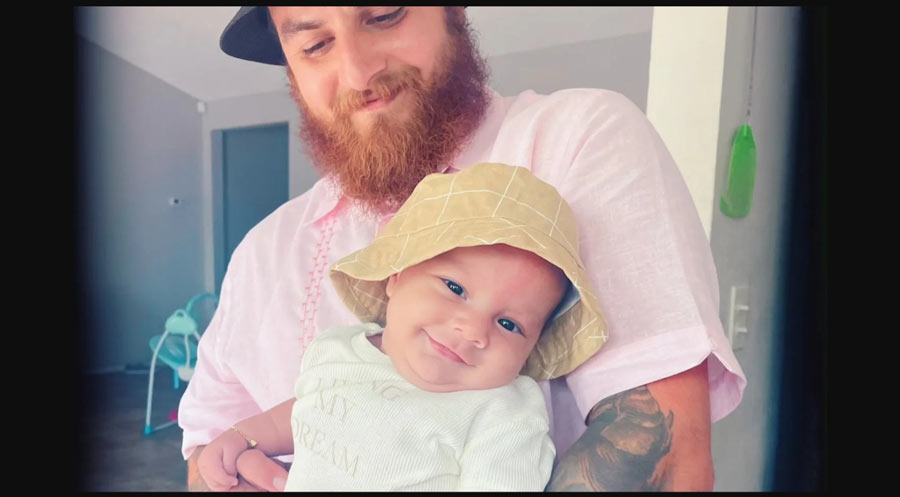Medical Mission to Honduras
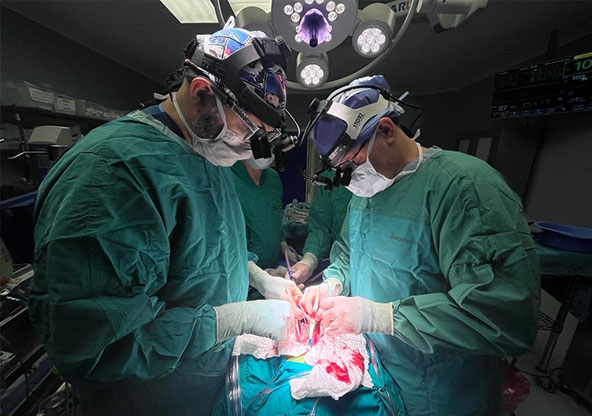
For one group at CHRISTUS Children's, the mission of extending the healing ministry of Jesus Christ extended to Tegucigalpa, the capital city of Honduras.
The team partnered with World Pediatric Program to work with the local pediatric heart teams to close gaps in access to care and provide additional support and training in caring for the most complex cases and Truncus Arteriosus.
Cardiothoracic surgeon Dr. Victor Bautista led the team. The team included Associates from CHRISTUS Children's from the Pediatric Intensive Care Unit (PICU), Registered Nurse Delailah Gonzales, and Alexandra Jimenez, respiratory therapist. In addition, an interventionalist from the University of California San Francisco Medical Center and an anesthesiologist from UNICAR in Guatemala. Alessandro Larrazabal and Daniela Palencia.
Dr. Bautista is no stranger to providing care around the world. Originally from Spain, he worked with underserved children from Europe, Africa, and the middle east to provide care, where he first connected with World Pediatric Program's mission.
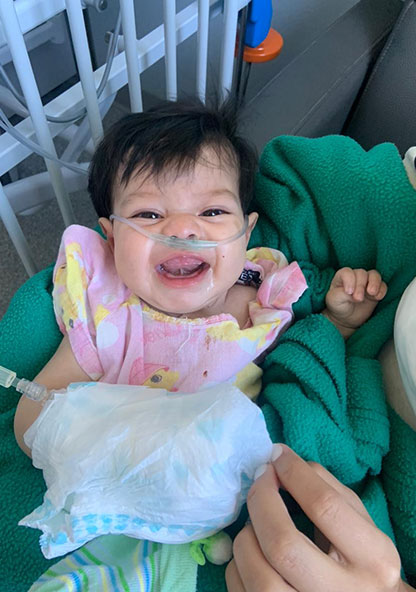
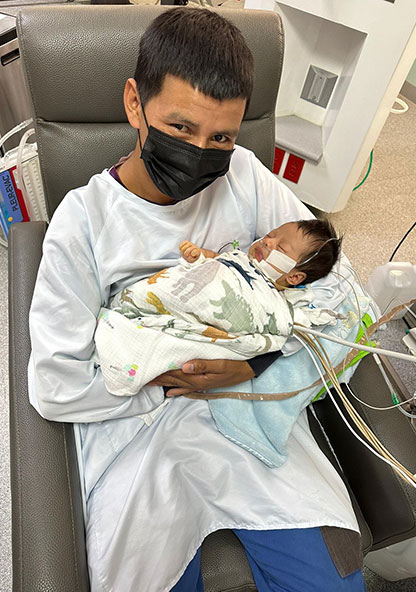
Work in Tegucigalpa
The team cared for 18 children, performing nine major surgeries and nine Cath Lab procedures. Their patients ranged from a newborn to a 16-year-old.
The team helped repair a ventricular septal defect (VSD), perform a mitral valve repair, correct a neonatal coarctation of the aorta and tetralogy of Fallot, and perform several other life-saving procedures.
The Honduran patients have some of the same conditions seen in San Antonio. For instance, the VSD repair was performed on a five-year-old weighing just 12 kg from massive pulmonary over circulation.
The newborn with coarctation had developed significant heart dysfunction. The mitral disease was from rheumatic fever, which posed a challenge for a successful repair.
Their most challenging surgery was on a child with Truncus Arteriosus with significant truncal valve regurgitation and hypoplastic left lung.
This complex procedure includes placing a patch to close the hole in the heart, creating a new aorta using the existing single blood vessel (truncus), and placing an artificial tube and artificial valve to create a new pulmonary artery and valve.
In addition, the patient had fevers the previous night and a whited-out left lung. Still, the whole team, including the local ICU, cardiology, cardiac surgery, and CHRISTUS Children's team, decided that very morning that the best chance of survival for that child was to undergo surgery.
"We go there to do cases they cannot do," explained Dr. Bautista. "Two patients in the mission were labeled with a red tag, meaning they were deemed inoperable without the collaboration of an international team"
Our team was happy to be the extra support needed to provide this care. All patients that were treated survived. Moreover, we keep in touch with the local team, and all patients are already home or remain in good condition.
A Learning Experience for Everyone
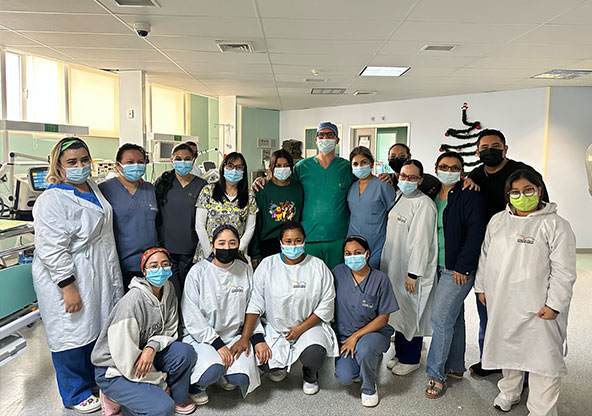
The goal of trips like this one is to partner with the group to provide care, learn, and grow alongside each other.
"It works as a symbiotic relationship," Dr. Bautista said. "You think you go there to teach, but you also learn from conditions we usually see, but from clinical situations we are not used to dealing with. We established a very good relationship with the local team and were able to exchange experiences and learn from those patients and the local team."
He said he didn't just learn from other physicians; in fact, the nurses and staff on the trip could see and show a different reality.
Delilah Gonzalez, a Cardiovascular ICU nurse, worked with the Honduran staff bedside to navigate the care of these complex patients. She was also able to spend time in the operating room. She explained her time in the operating room as an invaluable perspective, allowing her to see what her patients experience on the table.
"It changes how you care for a patient when you see them in surgery, and then 10 minutes later, you are caring for them bedside," she said.
An Extra Set of Hands
One of the beautiful parts of working with an organization like WPP is their commitment to partnering with established programs so that international teams can come in and be extra sets of hands.
Gonzalez said the surgeon in Tegucigalpa had a lengthy waitlist of patients who needed care, but with the two teams collaborating, many of the patients could be cleared off that list.
